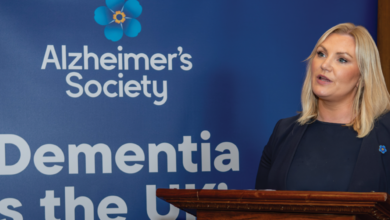Children in statistics
Following the publication of children’s social care statistics for Northern Ireland 2013/2014 by the Department of Health, Social Service and Public Safety, Adam Morton takes a look at the report’s findings.
The recently published report on children’s social care statistics for Northern Ireland 2013/14 states that at present there are 432,015 children living in Northern Ireland. At 31st March 2014, 26,000 of these children were known to Social Services as a Child in Need. A further 1,914 were on the Child Protection Register and 2,858 were children in care of the HSC Trusts defined as a looked after child. Around £200 million is spent annually on family and childcare within personal social services in Northern Ireland.
The Children (Northern Ireland) Order 1995 is the principal statute governing the care, upbringing and protection of children in Northern Ireland. It affects all those who work and care for children whether parents, paid carers of volunteers. The order emphasises the unique advantage to a child being brought up within his or her own family and as such regards families as a major way of supporting and helping children.
A child can be referred to social services for a variety of reasons. When a child is referred to social services an initial assessment is undertaken to determine if that child is a ‘child in need’ as defined by the Children Order. If a child is considered to be a child in need, services should be offered to assist the child’s parents/carers. If a child is considered to be a child at risk of ‘significant harm’ a child protection case conference may be convened and the child’s name may be included on the child protection register. In some cases social services may make an application to the Court for a legal order to enable them to provide an appropriate level of safeguarding for a child that may include removing a child from their family.
Children in need
A child is deemed to be in need if:
• he or she is unlikely to achieve or maintain, or to have the opportunity to achieve or maintain a reasonable standard of health or development without the provision of services by an authority;
• his or her health is likely to be significantly impaired, or further impaired without the provision of such service;
• he or she is disabled.
At 31st March 2014, 25,998 children in Northern Ireland were regarded by social services as a child in need. The Belfast Trust and the Western Health and Social Care Trust had the highest proportion of children regarded as a child in need. Taking into account their child populations in general, the report found that the two trusts, home to the cities of Belfast and Derry, also had higher rates of children in need than other trusts in Northern Ireland.
The number of children in need in 2014 had risen by 6 per cent compared to 2013 when there were 24,473 children in need. The report states that this increase was mainly due to the rise in the number of children in need in the Belfast HSC Trust as elsewhere the numbers of children in need remained similar in 2014 to that in 2013. Of those children categorised as children in need at 31st March 2014, 53 per cent were male while 47 per cent were female. This figure is slightly larger than the gender split in the child population in general which is 51 per cent male and 49 per cent female. Across all HSC Trusts the highest proportion of male children in need were those aged between 5-11 and 12-15.
Child protection
The Child Protection Register is a confidential list of all children in the area who have been identified at a child protection conference as being at significant risk of harm.
At 31st March 2014, 1,914 children were listed on Northern Ireland’s child protection register. On the child protection register there were a higher proportion of children aged under five compared with the overall child population. The Northern HSC Trust had the largest number of children on their child protection register with 24 per cent of Northern Ireland’s total.
The total number of children on the child protection register at 31st March 2014 represented a 2 per cent decrease from the previous year and was the lowest number since 2007. However the lowest number of children on the register in the past ten years occurred in 2004, when around 500 fewer children were on the child protection register than in 2014.
Looked after children
At 31st March 2014, 2,858 children were looked after in Northern Ireland. This was the highest number recorded since the introduction of the Children Order 1995. Since 2011, the number of looked after children in Northern Ireland has risen by 14 per cent and by 23 per cent since the lowest number of looked after children was recorded under the 1995 legislation. The number of looked after children at 31st March 2014 was 2 per cent higher than at the same time the previous year.
The report finds that the growth in the number of looked after children may be due to a number of related factors including the increased pressures on families to low employment, poverty and a reduction in support systems. In addition to these factors the rise in the number of children looked after can partly be attributed to a recent legal judgment in relation to young people aged between 16 and 17 who present as homeless and are then taken into care. This group accounted for 10 per cent of admissions to the Western HSC Trust during the year.
Fostering is still the preferred placement option for looked after children with 75 per cent of children in this category in foster care. A further 12 per cent were placed with parents, 7 per cent were placed in residential care while 5 per cent were put in ‘other’ placements. This trend, the report finds, is linked to the philosophy running through the Children Order 1995 that states safe family settings are a major way of supporting and helping children.





